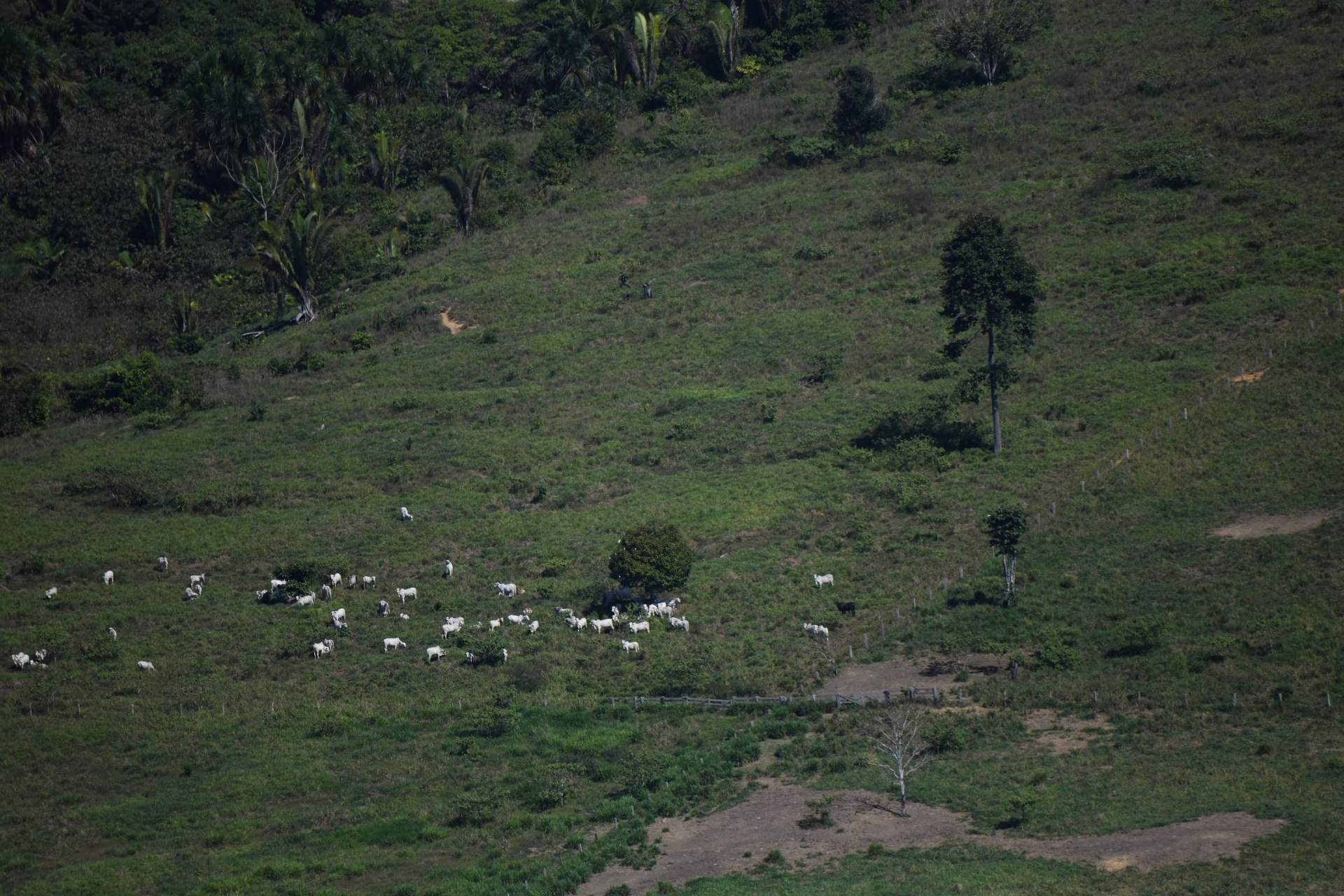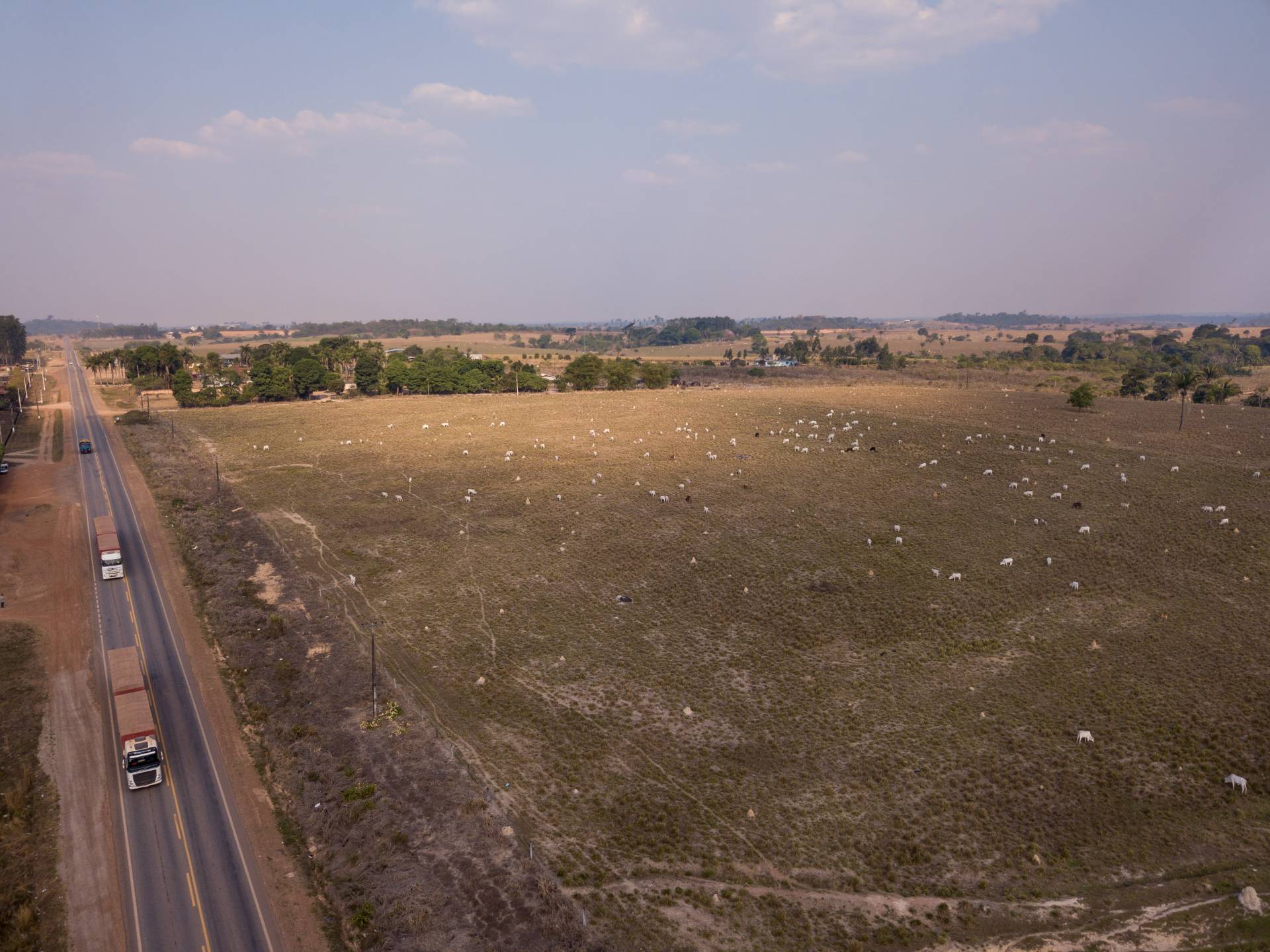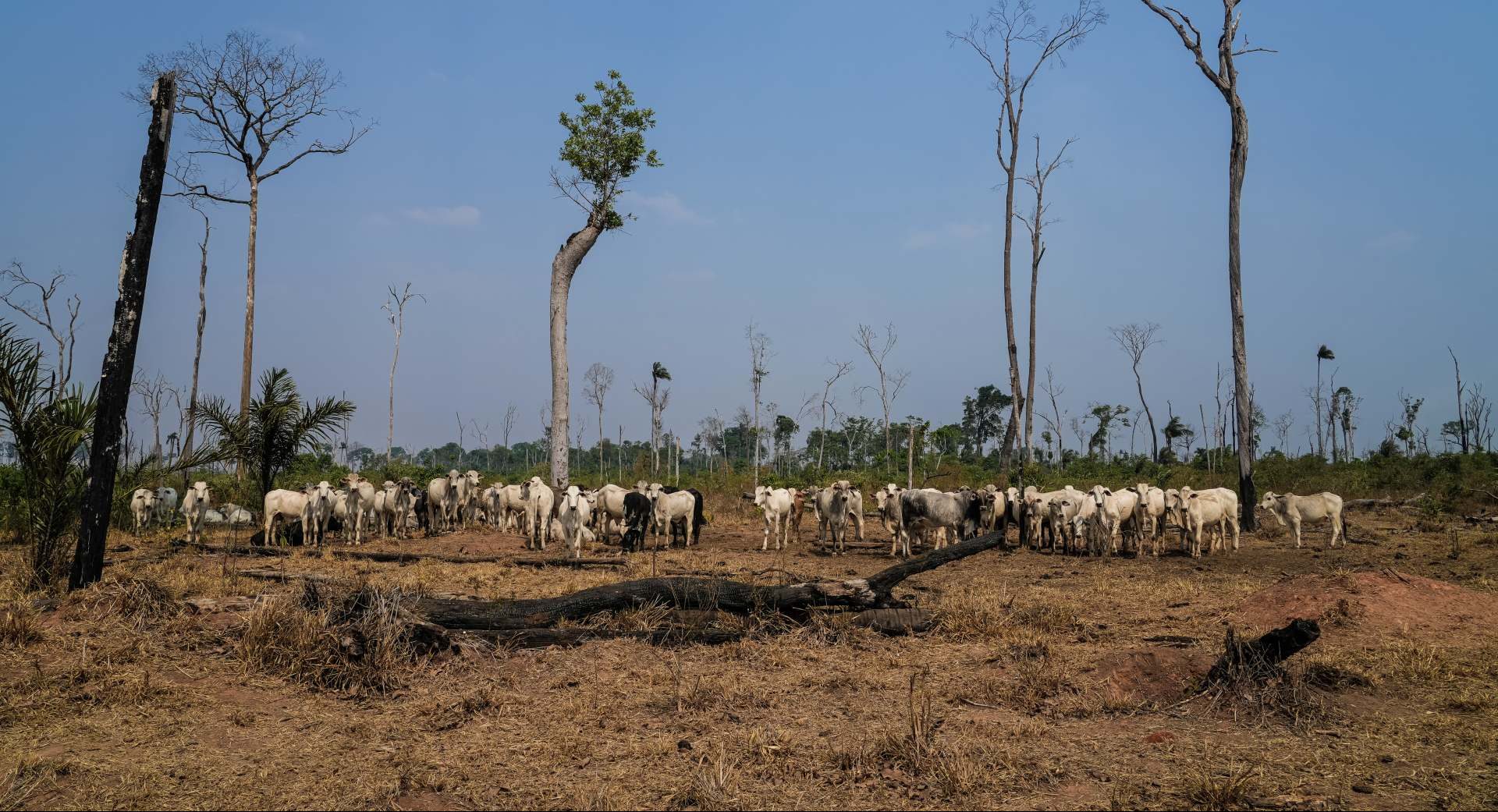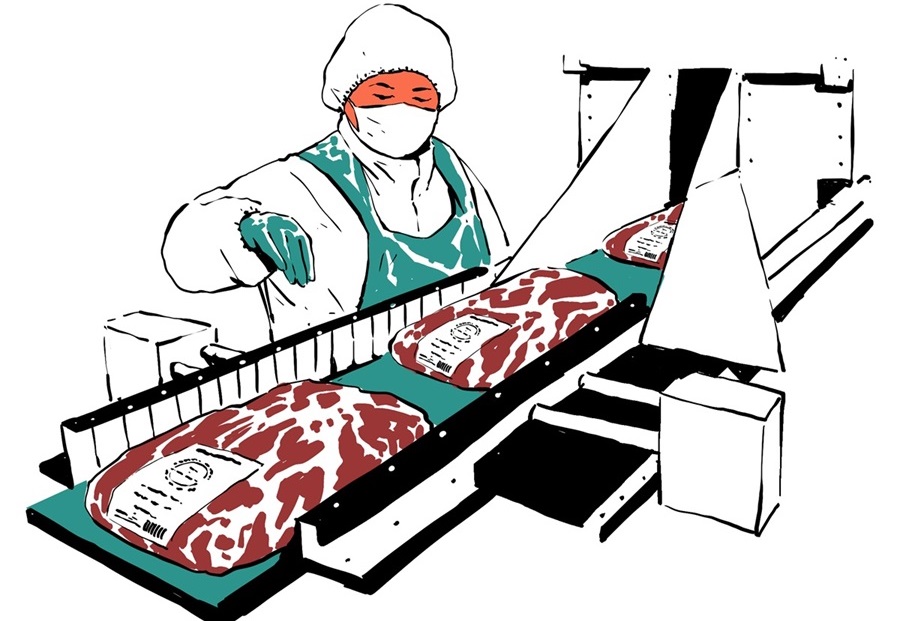In recent years, major Brazilian slaughterhouses, including JBS, Marfrig, and Minerva, have purchased cattle from economic groups under investigation not only for environmental offenses but also for money laundering and other white-collar crimes. The connections between these types of offenses raises concerns among global authorities, as environmental crimes, according to Interpol data, are currently the third most profitable illicit bussiness in the world, surpassed only by drug trafficking and smuggling.
“Money laundering linked to environmental crimes is a major problem often overlooked by governments”, says Marcus Pleyer, former president of the Financial Action Task Force (FATF) – an intergovernmental organization composed of 39 countries and considered one of the main international bodies in the fight against financial crimes. A study published by the entity advocates for the improvement of not only public policies but also corporate initiatives to monitor suppliers in this context.
“Illegal economies that destroy the Amazon, such as timber, mining, and irregular cattle, are linked to various crimes. The role of money laundering is to conceal the illegal and criminal origin of the capital”, notes Melina Risso, research director at the Igarapé Institute. A study made by the organization indicates suspicion of money laundering in 20% of the Federal Police operations carried out in the Legal Amazon region between 2017 and 2021.
An example of these connections is in a Repórter Brasil’s investigation that led JBS to admit the purchase of nearly 9,000 heads of cattle with irregular origins, in 2022. The animals were raised on farms that, according to the authorities, belonged to a deforestation criminal gang in Rondônia led by Chaules Volban Pozzebon. He was first arrested in 2019, but one of the group’s companies, registered in Chaules’ mother’s name, continued to supply cattle to Minerva until 2021 and to JBS until 2022.

considered the Brazil’s biggest deforester (Photo: Nilo D’Ávila/Greenpeace)
An internal report by authorities involved in the case, focusing on “money laundering,” shows that this company, Agropecuária Rio Preto, was part of the “financial core” supporting the criminal activities. Analyzing money transfers between companies and individuals in the group, the Federal Police noticed an “increase in transfers from companies linked to the livestock sector to Agropecuária Rio Preto” during the period in which the gang’s illegal activities expanded.
“However, it is worth noting that almost 30% of the funds leaving Agropecuária Rio Preto are paid by checks, making it difficult to trace the real destination of the money. Finally, we point out that a significant portion of Rio Preto’s resources originates from the companies and fronts of Chaules’ group”, many of them linked to illegal logging, conclude the investigators.
Between 2018 and 2022, Agropecuária Rio Preto sold tens of thousands of animals to JBS and hundreds to Minerva.
Contacted, JBS stated that “all purchases were in accordance with the company’s responsible purchasing policies, which strictly comply with current monitoring protocols”.
Minerva did not comment on the specific case but assured that “when any irregularity is identified in the operation of a supplier, it is immediately blocked in the company’s database, preventing any commercialization with the producer’s name and all properties linked to their personal ID”. The company also reported maintaining a rigorous compliance area.
Chaules Pozzebon’s defense categorically denied “the existence of any type of criminal scheme or money laundering”. The full statements can be read here.
Asset concealment
Businessman Luiz Pereira Martins Pires was denounced for the crime of money laundering and/or concealment of assets in a scheme of “bid fraud, misappropriation of funds, receipt of undue advantages” that mainly benefited the family of a former governor of the state of Tocantins. The case became known as the ‘Cattle Kings’ Operation’ and was made public in 2016.
According to investigations, Pereira’s bank transactions exceeded by 240% the values he declared to the Brazilian authorities. One of the irregularities pointed out by investigators was the declared average profitability of his rural activities, only 1% per year, “when the normal for this activity is 25% per year”.
His company, Agropecuária Umuarama, is said to have received transfers made directly and indirectly by the State Government of Tocantins in exchange for “undue advantages” given to the governor and his relatives.
This company is one of the owners of Agropecuária Pôr do Sol, which between July 2022 and April 2023 carried out hundreds of cattle sales operations to JBS. Marfrig did business directly with Umuarama, while Masterboi and Frigol received animal shipments from Pires himself.
The producer was held liable for using slave labor on his properties and has accumulated over R$ 34 million in fines for deforestation and other environmental crimes imposed by the Brazilian environmental authority. He is also suspected of evading R$ 13 million from the Brazilian Federal Revenue.

Pires’s defense stated that they “will not comment on the accusations but emphasize that there is no conviction, and we must all respect the presumption of innocence”.
Repórter Brasil contacted the authorities to request more information about the case involving Pires, but according to the public prosecutor’s office, the case is sealed.
Marfrig confirmed having negotiated with Agropecuária Umuarama but stated that at the time, “the property was in compliance with the company’s socio-environmental commitments.” The slaughterhouse also claimed to be unaware of Pires’s socio-environmental violation history, as he “is not in its supplier database,” only Agropecuária Umuarama, owned by Pires.
Frigol stated that they use “legal software” to conduct “searches in Official Gazettes from all over the country to check its supplier database” and that “at the time of acquisitions, there were no ongoing processes involving the producer or the mentioned companies.” Masterboi reported that they were unaware of the mentioned allegations. The full responses can be read here.
Tax evasion and corruption in Acre
Money laundering cases in livestock farming may also be connected to other types of offenses, such as fraud in livestock sanitary control systems, with potential impacts on the health of animals and consumers of beef.
One such case was reported in 2021 by Acre’s Public Prosecutor’s Office and said that the architects of the scheme were brothers Frank Vilela Barros and Arnaldo de Oliveira Barros Júnior. According to authorities, Frank paid bribes to public servants to forge Animal Transit Guides (GTAs), a mandatory document for the transport of cattle, so that he could transfer his herd between two states – Acre and Amazonas – without paying the border tax, “thus bypassing the state fiscal and sanitary surveillance system” the complaint says. According to prosecutors involved in the case, the profits from tax evasion were “in some cases” laundered through cattle.
The scheme became public through a judicial complaint in 2021 – until August 2019, Júnior sold cattle directly to JBS. In addition, the two brothers negotiated animals with other livestock farmers, who in turn sold to JBS until December 2021, when the complaint had already been filed, potentially contaminating the slaughterhouse’s supplychain with irregular animals.
The brothers’ lawyer informed that the process involving his clients “is in the final allegations phase” and said that “the operation which resulted in the procedure was annulled by the State of Acre Court of Justice”. JBS said the purchases were in accordance with the company’s policies. Read the full statements here.
Due diligence is a way to reduce exposure
According to Melina Risso, from Igarapé Institute, livestock farming becomes attractive for money laundering because “we do not have full traceability of the supply chain”. “There is a process in which slaughterhouses only look at the last Animal Transit Guide (GTA) [document issued at the time of buying and selling animals], but there is no monitoring from the beginning of the animals’ lives”.
The Money Laundering and Environmental Crimes report by the intergovernmental organization Financial Action Task Force (FATF) points out that one of the ways to combat money laundering from environmental crimes is “strengthening public private sector dialogue”. This should happen sharing “risk information, and strengthen due diligence of supply chains and their financial flows”.
The country’s major slaughterhouses have corporate policies that address this issue – with varying levels of detail. JBS’s Business Partner Code of Conduct states that expect these partners “comply with the guidelines set out in the Business Associate Code of Conduct– BACC”, including anti-money laundering”, but does not specify how this is monitored by the company. The company’s Compliance Program does not specifically address the issue.
Marfrig and Minerva have specific guidelines for addressing money laundering. Marfrig says that “people or companies known by media for involvementin illegal activities;” deserve more attention and, therefore, greater monitoring. Minerva lists several situations that could indicate possible money laundering in its policy for preventing financial crimes. The report did not locate internal documents or policies from Masterboi and Frigol for this purpose.
In 2024, money laundering linked to environmental crimes will become one of the priority actions of the Brazilian National Strategy to Combat Corruption and Money Laundering, a network of coordination with members of the three branches of government that discusses and implements best practices. “Proving the materiality of the money laundering crime is not so simple because you need to have other structures together. It is a white-collar crime; it is necessary to prove the illegal origin of the money, and this requires a more extensive probative process”, concludes Risso.



